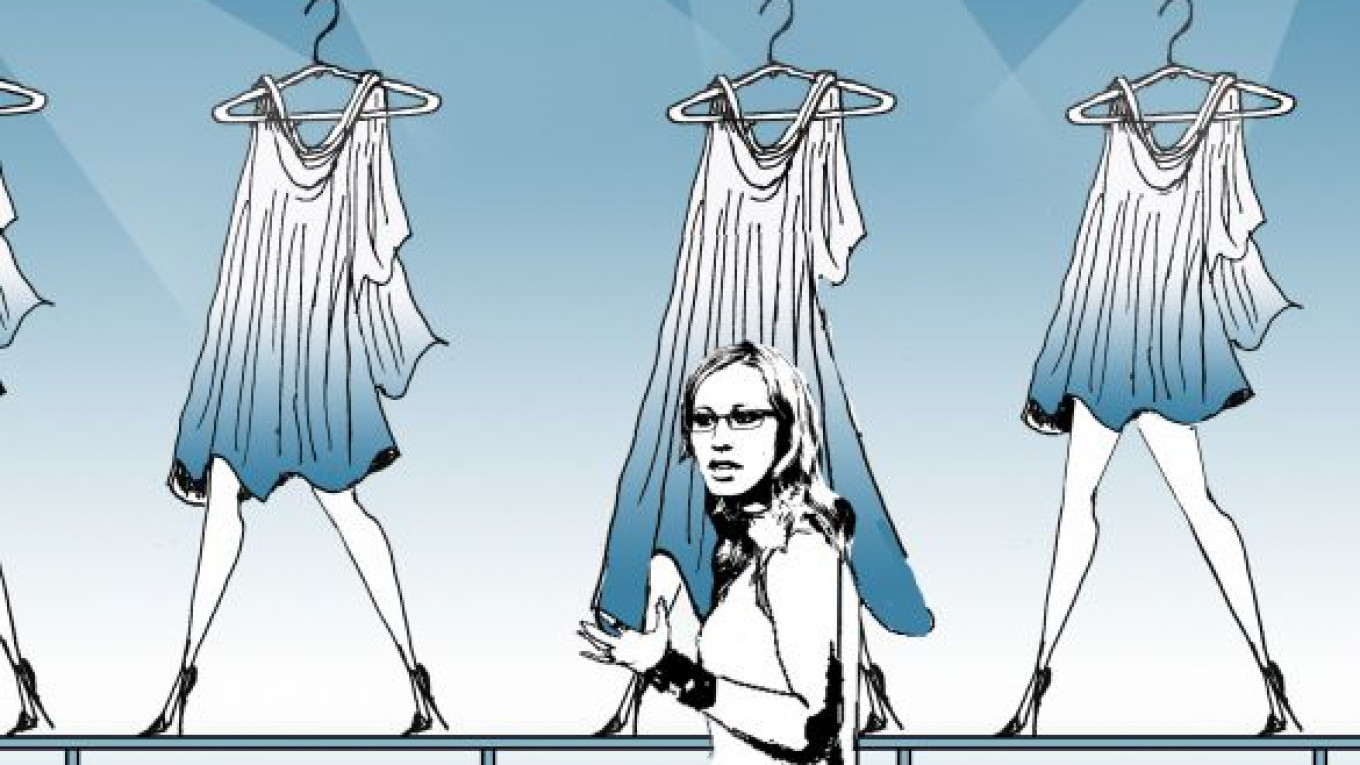This week, MuzTV started a show called “Top Model po-Russki,” a reality show in which a group of would-be models live together and go through tests until they are whittled down to the most lissome one, who wins a modeling contract.
It’s a local version of the U.S. reality show, “America’s Next Top Model,” which is shown on MuzTV’s rival, MTV Russia, with dubbing. Its judges have included the terrifying ex-model Janice Dickinson, with her barking comments at contestants and radical cosmetic surgery.
It is a glossy show with the models running around Los Angeles, and some of the 15 winners so far have used the exposure to break into show business as much as modeling.
Meanwhile back in Russia, the show is hosted by ubiquitous it-girl Ksenia Sobchak, who has done a bit of modeling for a Russian casual clothing brand, but is more someone who has made it in show business despite lacking standard model looks.
The first batch of 34 women arrived at Cosmos Hotel, dragging huge suitcases.
In the first round, they had to pull out an outfit on the spot and parade in front of Sobchak and Maxim Rappaport, a man described as a stylist and designer, and model Inna Zobova, who was Miss Russia in 1994 and has done a lot of catwalk and magazine work. The contestants did not have a changing room, so were just ripping off their clothes in front of the cameras.
Sobchak was mean about their first try. “I saw a lot of goddesses of the Leningradka to be honest,” she said, referring to the Leningradskoye Shosse highway notorious for its low-cost hookers. Model Zobova said more charitably that she liked two or three but the women did not know how to present themselves.
The first unlucky contestants were sent home, some in tears. Anastasia, 18, a dark-haired student with hoop earrings, was told she was “not ready to learn.” She said afterward that she had rearranged her studies and traveled from Yekaterinburg in the Urals to take part and it was “all pointless.”
“They did not even feed me, I’m hungry” she said, stamping out, showing she perhaps had the wrong attitude for a model.
So far, you can see the makers going for interesting characters likely to create conflict. There’s the tough blonde Valeria, who taught dance at a woman’s prison and had to be dissuaded from stripping to a tiny leather bikini in her first photoshoot. “You don’t have to show everything at once,” the stylists advised her.
Then there’s over-privileged oligarch girlfriend Arina, whose boyfriend has given her a Bentley Continental and copious diamonds, some of which she showed off. Why don’t you just enjoy living in his mansion? a judge asked. “I got bored,” she said.
Far less fortunate is teenage mother Yevgenia, 18, who said she suffered from anorexia after her mother gave up raising her and her grandfather died. She was told in the hospital that she would not survive. “I wanted to live after all, so I started eating,” she told the judges.
The problem with the licensed local remake is that it does not look glamorous at all. With all due respect, Cosmos Hotel is not redolent of 21st-century style.
And there was a distinct lack of Russia’s most famous models, such as Alyona Vodonayeva from Nizhny Novgorod, or Irina Shayk, the swimsuit model from the Chelyabinsk region who has been romantically linked to footballer Cristiano Ronaldo. And where is Naomi Campbell when you need her?
The show was also rather cagey about the exact nature of the main prize, saying only that it included a magazine shoot, a yearlong contract with a makeup brand and working for a big agency. While Russia has produced more than its fair share of leggy, high-cheek-boned models, all of them have hit the big time by going abroad.
A Message from The Moscow Times:
Dear readers,
We are facing unprecedented challenges. Russia's Prosecutor General's Office has designated The Moscow Times as an "undesirable" organization, criminalizing our work and putting our staff at risk of prosecution. This follows our earlier unjust labeling as a "foreign agent."
These actions are direct attempts to silence independent journalism in Russia. The authorities claim our work "discredits the decisions of the Russian leadership." We see things differently: we strive to provide accurate, unbiased reporting on Russia.
We, the journalists of The Moscow Times, refuse to be silenced. But to continue our work, we need your help.
Your support, no matter how small, makes a world of difference. If you can, please support us monthly starting from just $2. It's quick to set up, and every contribution makes a significant impact.
By supporting The Moscow Times, you're defending open, independent journalism in the face of repression. Thank you for standing with us.
Remind me later.






